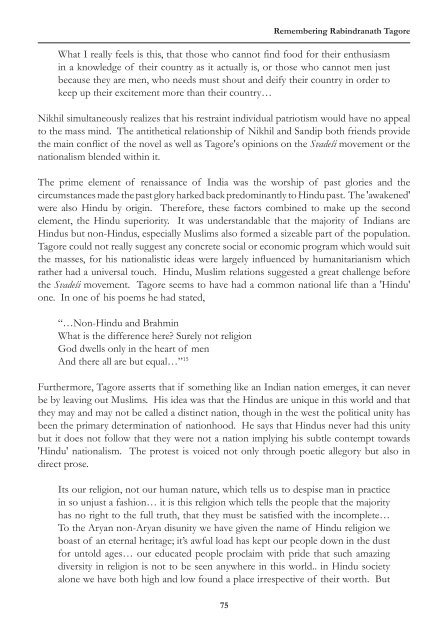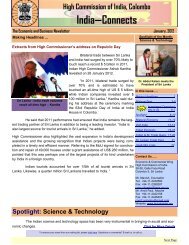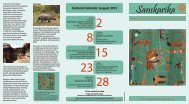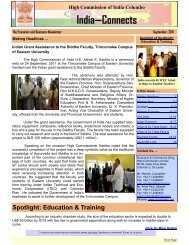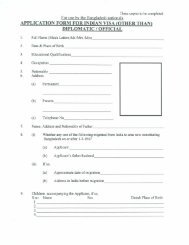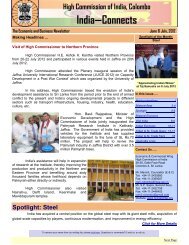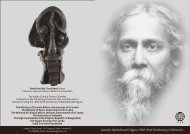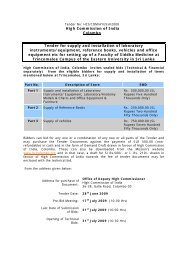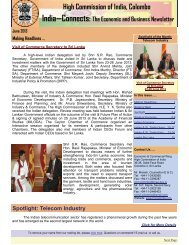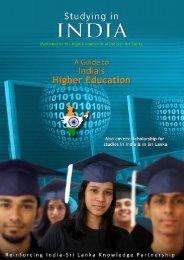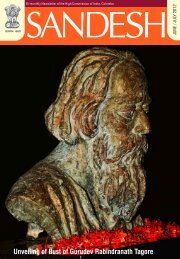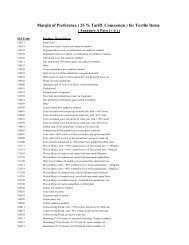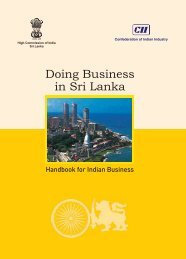Remembering Rabindranath Tagore Volume - High Commission of ...
Remembering Rabindranath Tagore Volume - High Commission of ...
Remembering Rabindranath Tagore Volume - High Commission of ...
Create successful ePaper yourself
Turn your PDF publications into a flip-book with our unique Google optimized e-Paper software.
75<br />
<strong>Remembering</strong> <strong>Rabindranath</strong> <strong>Tagore</strong><br />
What I really feels is this, that those who cannot find food for their enthusiasm<br />
in a knowledge <strong>of</strong> their country as it actually is, or those who cannot men just<br />
because they are men, who needs must shout and deify their country in order to<br />
keep up their excitement more than their country…<br />
Nikhil simultaneously realizes that his restraint individual patriotism would have no appeal<br />
to the mass mind. The antithetical relationship <strong>of</strong> Nikhil and Sandip both friends provide<br />
the main conflict <strong>of</strong> the novel as well as <strong>Tagore</strong>'s opinions on the Svadeśi movement or the<br />
nationalism blended within it.<br />
The prime element <strong>of</strong> renaissance <strong>of</strong> India was the worship <strong>of</strong> past glories and the<br />
circumstances made the past glory harked back predominantly to Hindu past. The 'awakened'<br />
were also Hindu by origin. Therefore, these factors combined to make up the second<br />
element, the Hindu superiority. It was understandable that the majority <strong>of</strong> Indians are<br />
Hindus but non-Hindus, especially Muslims also formed a sizeable part <strong>of</strong> the population.<br />
<strong>Tagore</strong> could not really suggest any concrete social or economic program which would suit<br />
the masses, for his nationalistic ideas were largely influenced by humanitarianism which<br />
rather had a universal touch. Hindu, Muslim relations suggested a great challenge before<br />
the Svadeśi movement. <strong>Tagore</strong> seems to have had a common national life than a 'Hindu'<br />
one. In one <strong>of</strong> his poems he had stated,<br />
“…Non-Hindu and Brahmin<br />
What is the difference here? Surely not religion<br />
God dwells only in the heart <strong>of</strong> men<br />
And there all are but equal…” 15<br />
Furthermore, <strong>Tagore</strong> asserts that if something like an Indian nation emerges, it can never<br />
be by leaving out Muslims. His idea was that the Hindus are unique in this world and that<br />
they may and may not be called a distinct nation, though in the west the political unity has<br />
been the primary determination <strong>of</strong> nationhood. He says that Hindus never had this unity<br />
but it does not follow that they were not a nation implying his subtle contempt towards<br />
'Hindu' nationalism. The protest is voiced not only through poetic allegory but also in<br />
direct prose.<br />
Its our religion, not our human nature, which tells us to despise man in practice<br />
in so unjust a fashion… it is this religion which tells the people that the majority<br />
has no right to the full truth, that they must be satisfied with the incomplete…<br />
To the Aryan non-Aryan disunity we have given the name <strong>of</strong> Hindu religion we<br />
boast <strong>of</strong> an eternal heritage; it’s awful load has kept our people down in the dust<br />
for untold ages… our educated people proclaim with pride that such amazing<br />
diversity in religion is not to be seen anywhere in this world.. in Hindu society<br />
alone we have both high and low found a place irrespective <strong>of</strong> their worth. But


